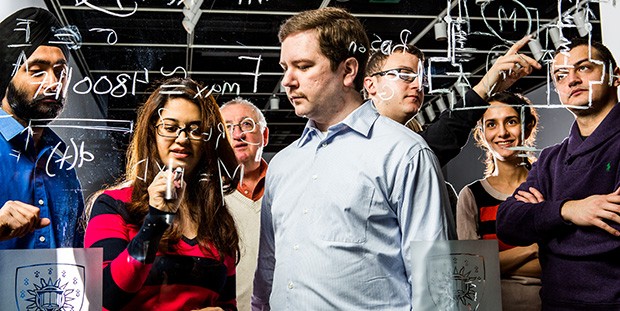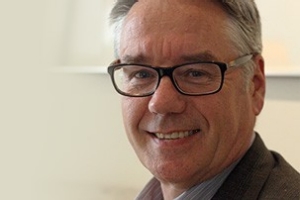Huddart cites Simon Fraser University in downtown Vancouver, which has been involved in a revitalization process particular to communities that have long experienced economic decline and challenging social conditions.
“This is one of the leading examples of how a university can support the transformation of its surrounding community,” says Huddart.
Peterborough’s Trent University is creating a shared platform that initially focused on community-service learning but has evolved into a broader social enterprise development that is benefiting the community.
In Montreal, Concordia’s La Ruche d’Art Community Studio is another example. Through peer-to-peer teaching and learning, the art hive – ‘la ruche d’art’ – welcomes everyone as an artist, especially people living at the lowest income levels or marginalized due to mental health issues, physical disability, immigration dislocation or other types of complex social challenges.
“La Ruche d’Art is a powerful cultural outpost in St. Henri and is having a transformative effect on that community,” notes Huddart.
In cities where there is a cluster of postsecondary institutions, these cities are experiencing a higher level of impact in the local and regional economy.
“We are seeing multiple institutions collaborating and driving innovation to create a critical mass in a particular region. And as a result, the cities are seeing benefits to the economy,” he says.
The J.W. McConnell Family Foundation has launched several initiatives designed to engage the public as well as the private, public and non-profit-sectors to explore ways to make their cities and communities truly thrive.
Cities for People is exploring four themes: making economies and money work better for people, cities, and the planet; building resilient and livable city spaces; empowering civic engagement and improving municipal governance; and engaging people and communities in artistic projects that engender shifts in civic perception and possibility.
Another initiative is RECODE aimed at giving college and university students opportunities to become active players in social innovation and entrepreneurship (SI/SE). Thanks to a $500,000 grant from the J.W. McConnell Family Foundation, Concordia students will be have the chance to develop SI/SE skills.
“It is clear there is a real need for innovation and adaptiveness within our social institutions, such as universities and our health care institutions,” says Huddart.
“RECODE is an initiative that addresses this adaptive ability and is focused on helping students test, prototype and explore the development of a social enterprise as a possible pathway to career success that is both personally rewarding and financially viable,” he says.
Because of its partnership with leading local consortia, this initiative also has the potential to help students at all levels contribute in transformational ways to the development of Montreal’s, Quebec’s and Canada’s social economy.
Universities are very well-placed to spearhead innovation, says Huddart. “What better place for this innovation to occur than a university where students are among a cohort of peers, have access to faculty, libraries, and other resources to begin a social enterprise.”
He points to Ryerson’s business incubator model for startups, Digital Media Zone (DMZ), as a “powerful example of a university that is investing in its surrounding community. This initiative provides opportunities for students, faculty and local entrepreneurs to come together to create new jobs and new solutions to specific problems and challenges.”
At Concordia, the incubator District 3 gives students from all Faculties an environment in which they could participate in projects with an innovative or entrepreneurial mandate.
When it comes to gauging the impact of a university’s contribution to revitalizing a city, Huddart says he likes to use this phrase, “When the bricks of the ivory tower are taken down to build bridges in the community, that is when we will know we are succeeding.”
And he says in many communities across the country, those bridges are getting stronger every day.
Join Stephen Huddart on March 23 when he tackles the question, “How can universities help build thriving, innovative cities?” The event takes place from noon to 1:30 p.m. in Room MB 10.121 of the John Molson School of Business Building (1450 Guy St.), Sir George Williams Campus. Advance registration is required.
Our next speaker is James Neal, University Librarian Emeritus, at Columbia University. He comes to Concordia on April 1 and will reflect on the question, “What fundamental shifts do next-generation libraries (universities) need to make?”
 RECODE is one of the initiatives launched by the J.W. McConnell Family Foundation.
RECODE is one of the initiatives launched by the J.W. McConnell Family Foundation.
 Stephen Huddart, president of the J.W. McConnell Family Foundation, will visit Concordia on March 23.
Stephen Huddart, president of the J.W. McConnell Family Foundation, will visit Concordia on March 23.